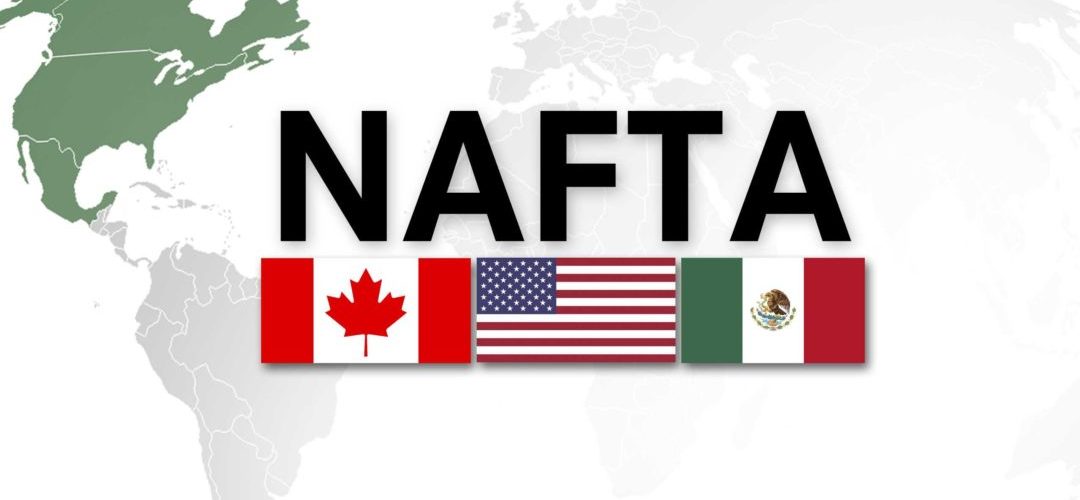For Immediate Release
Monday January 22, 2018
Montreal, QC – In the space of 24 years, the North American aerospace industry has grown on a continental scale. As in the automotive sector, the stability of the supply chain was built on a North American commercial space. Breaking this structure would put Quebec’s aerospace cluster to the test.
“In case we should give up NAFTA, a slump is to be expected,” explains IAM Quebec Coordinator David Chartrand. “Aerospace is the leading exporter from Quebec to the United States and third to Mexico. The United States is the largest aerospace market in the world and is the largest export market for Canadian production for this industry as a whole. It is clear that the end of NAFTA would have a direct impact on thousands of workers. That said, we must not sign an agreement that would require us to accept anything.”
If a new version of NAFTA does not make it possible to raise working conditions to an acceptable level, to balance the rights of North American workers and to better distribute the wealth created, it will be a failure. On the other hand, the end of NAFTA would bring its share of economic uncertainty and in this kind of situation, the first to be negatively affected are always the workers. So no matter the outcome of the negotiations, millions of workers are at risk.
Recommendations of the Union of Machinists (IAMAW)
The sixth round of negotiations is decisive for the future of the agreement. This round should include serious discussions on respect for rights, fair trade, environmental protection and food independence, as well as on a more efficient redistribution of wealth.
“Since 1994, the economies of NAFTA countries have developed an interdependent relationship that has served primarily investors and large corporations,” says Chartrand. “If we look at the situation as a whole, a new agreement that would serve only once again the interests of investors and free trade would not be good. Without measures to improve the lives of workers, to better protect North American citizens, their environment, their rights, their laws and their jobs, a new NAFTA would be useless.”
The IAMAW proposes four recommendations to build a fairer and more equitable NAFTA.
These recommendations are specific to the issues that affect all of our members across North America.
Here is a summary:
Recommendation 1: Give real power to the North American Agreement on Labor Cooperation (NAALC) and the Commission for Labor Cooperation.
- Workers in North America must be able to benefit from labor rights in accordance with the standards of the International Labor Organization (ILO).
- Giving the Commission for Labor Cooperation the balance of power needed to achieve its objectives and improving the situation of workers would be a step in the right direction.
Recommendation 2: Develop corporate accountability mechanisms for the social and economic impacts they create by outsourcing or relocating jobs outside of NAFTA.
- Put in place measures that will promote the protection and maintenance of jobs and businesses within the Free Trade Area, while maintaining a level of flexibility that will allow them to have access to offshoring and subcontracting only under certain specific conditions.
- Re-evaluation of preferential tariffs based on rules of origin for products from outside NAFTA should be done to combat the exodus of jobs.
Recommendation 3: Improve dispute resolution procedures
- Elimination of Chapter 11 allowing an investor or company to sue one of the member countries simply because a political decision impedes its freedom of trade and business strategy.
- Revision of Chapter 19. Canada, the United States and Mexico could amend their legislation so that no state court can hear a cause in international trade, as well as litigation relating to the application and interpretation of NAFTA, without prior mediation and conciliation.
- Increased staffing at the Commercial Arbitration and Mediation Centre for the Americas (CAMCA). Determine the amount of personnel required taking into account the responsibilities of the CAMCA, the volume of trade among NAFTA countries, the number of potential disputes, the diversity of areas and the types of litigation that may occur. Diversity in terms of expertise should also be made available among CAMCA arbitrators and mediators.
Recommendation 4: Promote the creation of supply chains and production lines within NAFTA.
- Development of a tripartite structure aimed at the innovative valorization and use of raw materials within the agreement.
- Establishment of a positive discrimination mechanism on public contracts by requiring a minimum of “made in NAFTA” content, “made in NAFTA zone”, in the calls for tenders of the various public sector organizations of the member countries when the context allows it.
Click here for the full brief on the recommendations.
-30-
For further information:
David Chartrand – IAM Quebec Coordinator
514-956-1578/514-231-9100
Bill Trbovich – IAM Director of Communications
416-386-1789 Ext #31/416-735-9765



